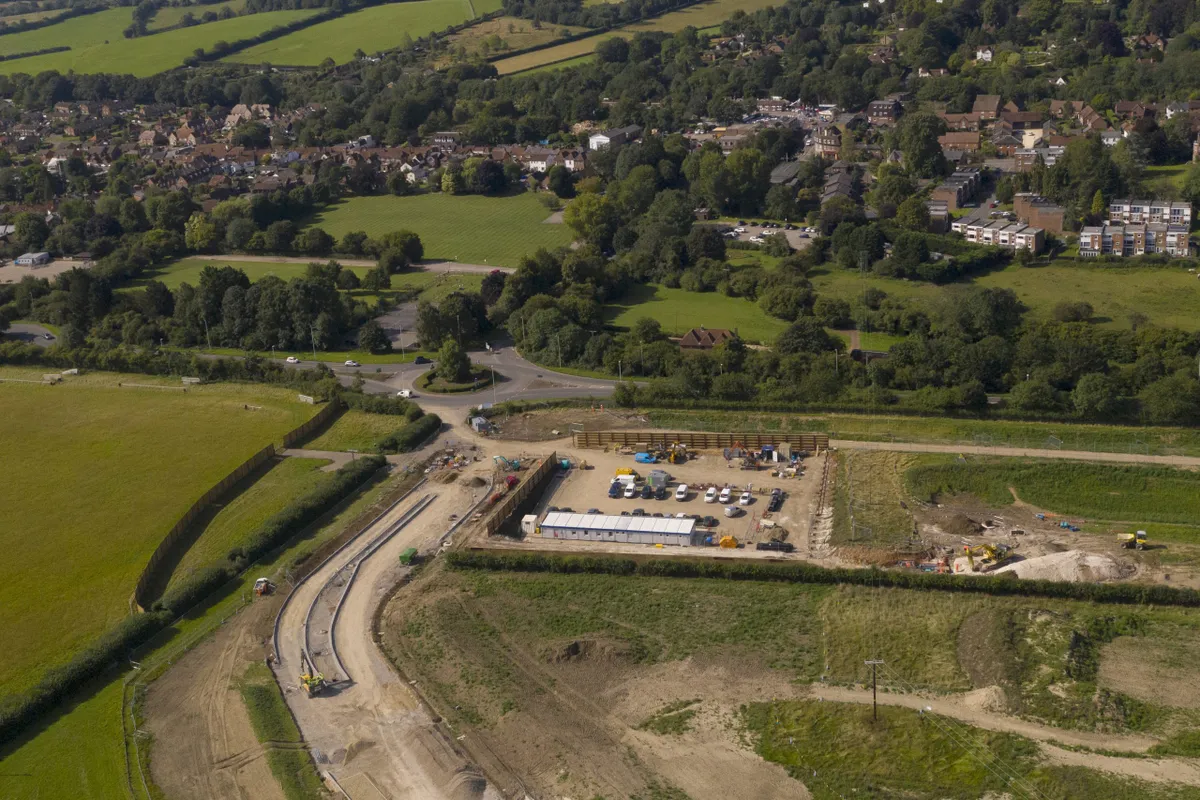High Speed 2 (HS2) is a new high-speed railway that is planned to run nearly the length of the UK, covering destinations from London, to Edinburgh. While some phases of its development await approval, Parliament approved the first phase in 2017, with work already under way.
But The Wildlife Trusts have voiced serious concerns over the railway’s impact on nature in their new report.
Entitled What’s the Damage: Why HS2 will cost nature too much, the report provides a comprehensive assessment of the environmental damage the development will have.
The report analysed data from 14 Wildlife Trusts affected by HS2’s current plans, as well as other charities and landowners along the route. It concluded that should the railway go ahead as it is currently proposed, damaged caused to the natural world up the length of England will be extensive, causing permanent loss of nature and local extinction of endangered species.
In summary, the report found that HS2’s current proposals risk the loss of, or significantly impact the following:
- 5 wildlife refuges of international importance, protected by UK law
- 33 sites of Special Scientific Interest, which are protected by UK law
- 693 Classified Local Wildlife Sites
- 21 Designated Local Nature Reserves
- 26 Large landscape-scale initiatives, including 4 Nature Improvement Areas awarded £1.7 million of public money, and 22 Living Landscapes, which are partnership schemes to restore nature
- 18 Wildlife Trust Nature Reserves, with many of these designated wildlife sites
- 108 ancient woodlands
- Other irreplaceable habitats such as veteran trees, wood pasture, and old meadows
- Extensive further areas of wider natural habitat
- Barn owls and endangered wildlife including white-clawed crayfish, willow tit, and lizard orchid. Rarities such as dingy skipper may become locally extinct.

“The potential loss of so many really important wild places and the wildlife that depends on them has never been revealed before – nor has the damage that will be done to taxpayer-funded, nature recovery projects,” said Nikki Williams, The Wildlife Trusts’ Director of Campaigns and Policy.
“HS2 will destroy precious carbon-capturing habitats if it’s allowed to continue in its current form – it will damage the very ecosystems that provide a natural solution to the climate emergency.”
The Wildlife Trusts does not call for HS2 to be stopped, but instead believes that a new approach is needed if it is to continue — one which takes a greener approach in line with current government commitments.
During HS2’s early planning stages, The Wildlife Trusts developed a report outlining a plan for the railway that would provide the net gain for wildlife, allowing nature to recover.
However The Wildlife Trusts believe that HS2 has removed its intention to “minimise the combined effect of the project” on climate change and the environment from its policy, and criticised HS2 Ltd’s suggestions for mitigating the damage it will cause as inadequate and inappropriate.
“Developments like HS2 should not be a permanent barrier to wildlife – they should be designed to enhance, not harm, the environment," said Williams. "It’s not too late to stop and rethink now – before HS2 creates a scar that can never heal.”
The Wildlife Trusts are inviting the public to sign their open letter to Boris Johnson, requesting that he rethink HS2.
